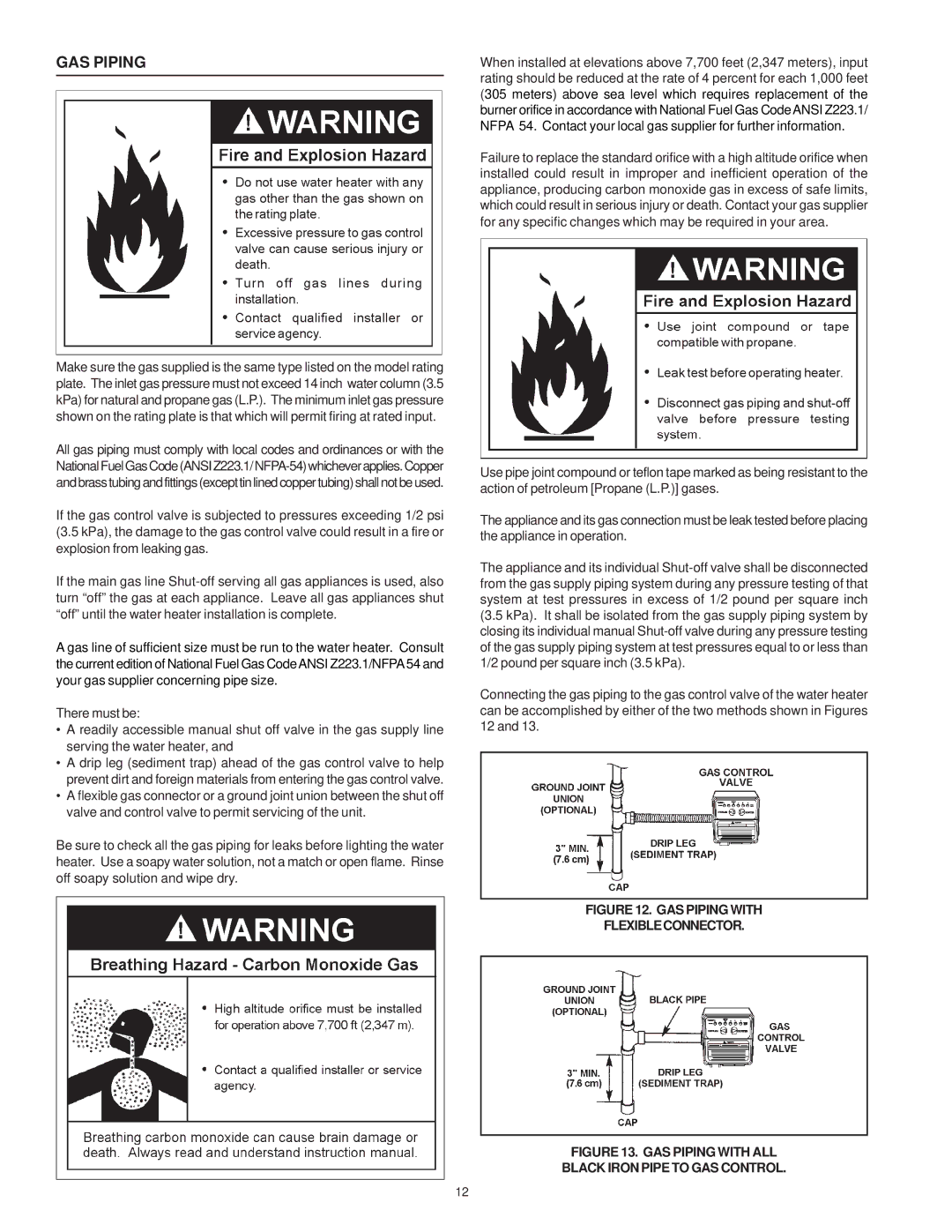Residential Gas Water Heater specifications
State Industries has long been a trusted name in the water heating industry, known for its innovative and reliable residential gas water heaters. With a commitment to quality and efficiency, State Industries offers a range of products designed to meet the needs of homeowners. The State Industries Residential Gas Water Heater is an ideal choice for families seeking hot water solutions that balance performance, affordability, and durability.One of the standout features of the State Industries gas water heater is its high efficiency. Many models are designed with Energy Factor (EF) ratings that exceed federal standards, allowing homeowners to enjoy lower utility bills while reducing their environmental impact. The use of advanced combustion technology ensures that gas is burned efficiently, maximizing available energy and minimizing waste. This is particularly beneficial in areas where gas prices fluctuate, as users can count on consistent savings.
The water heaters are constructed with robust materials, including a glass-lined tank to prevent corrosion and extend the lifespan of the unit. The insulation surrounding the tank minimizes heat loss, contributing to better energy efficiency. State Industries offers various tank capacities, ranging from 30 to 50 gallons, accommodating different household sizes and hot water demands.
Another notable characteristic is the implementation of safety features, such as a temperature and pressure relief valve that ensures safe operation. Some models are equipped with advanced venting technologies that help reduce exhaust emissions and enhance efficiency. Additionally, many gas models come with a reliable ignition system that allows for quick startups and consistent performance.
Incorporating user-friendly designs, State Industries gas water heaters often feature intuitive controls and easy-to-read gauges. This makes it easier for homeowners to monitor performance and adjust settings according to their needs. The availability of modulating gas valves in certain models allows for precise control over the heating process, providing hot water whenever it's needed.
State Industries also provides excellent customer support and extensive warranties for their products, giving users peace of mind. With a combination of efficiency, durability, and performance, the State Industries Residential Gas Water Heater stands out as a preferred option for homeowners looking to invest in reliable and effective water heating solutions. Regardless of the specific model chosen, users can expect a commitment to quality that is synonymous with the State brand.

